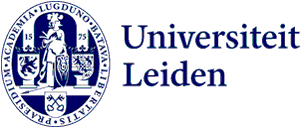
Training for lecturers: making skills more visible in curricula
On Tuesday 8 November, a workshop for lecturers was held on skills that students acquire throughout their studies. The workshop was organised by KU Leuven as part of the Erasmus+ project ASSET-H.
The workshop was led by Catho Jacobs from KU Leuven. During a two-hour period, she encouraged attendees to actively reflect on their courses. They examined, step by step, the skills that students are taught and how they are made visible. Using a storyboard, the lecturers created an ideal situation for the course they teach. The participants appreciated this hands-on, visual approach.
Making skills more explicit
‘It’s an effective approach to making explicit the skills that are often already covered implicitly in your lessons,’ Katja Lubina commented. The attendees were then asked to draw up an action plan, which forced them to think more specifically about possible next steps. For example, how could they now implement this ideal situation in the lecture hall? And when could they set aside time to work on this plan, and who else is involved?
Which skills do you teach students?
‘This workshop is great for lecturers who haven’t yet given any systematic thought to the skills they want to teach their students,’ said Bruno Verbeek . These kinds of issues are currently being discussed in many departments. This workshop provided a good starting point for exploring opportunities to shed light on the skills taught to students as part of curricula.
Want to know more about the project?
As part of the ASSET-H Erasmus+ project, we collaborate closely with colleagues from the Faculty of Arts at KU Leuven and the Faculty of Arts at the University of Helsinki and with the Belgian branch of the employment agency Randstad. The aim of the project is to make our students more aware of the relevance of the skills they acquire during their studies to the job market. The full name of the project is ‘Awareness of Students’ Skills: an Employability Toolkit for the Humanities’ (ASSET-H). The next step in the project is to develop a tool for students to become aware of and train their skills.
